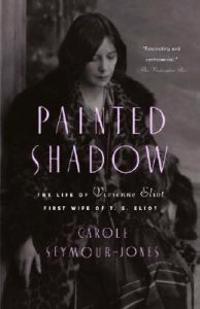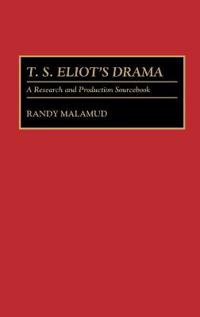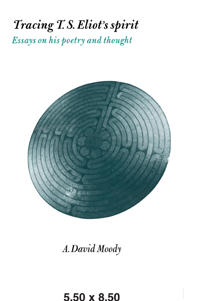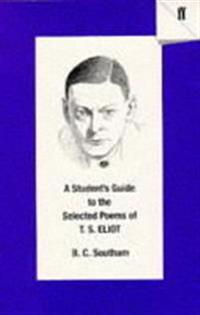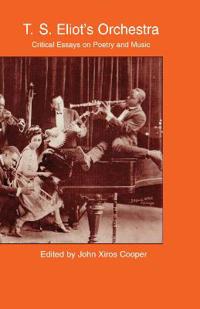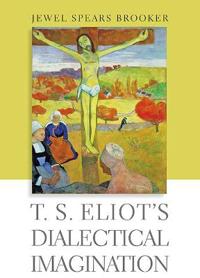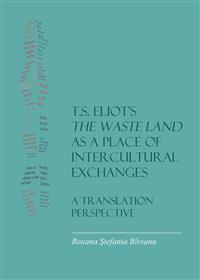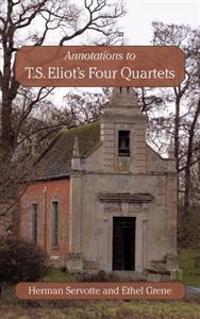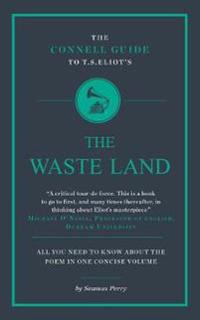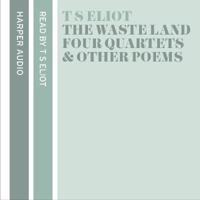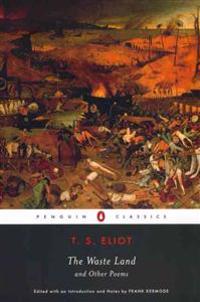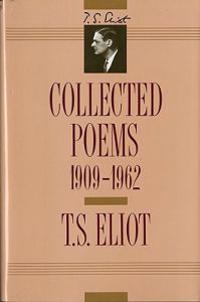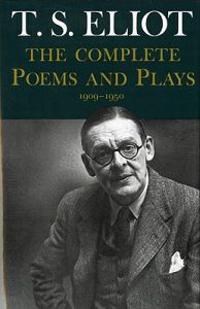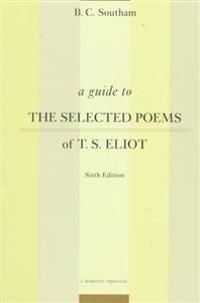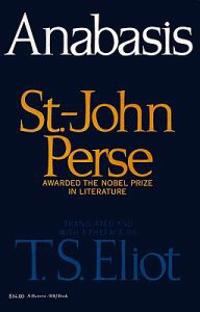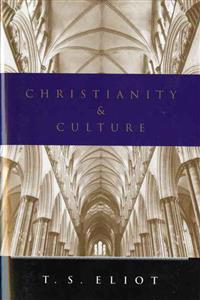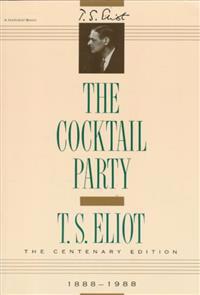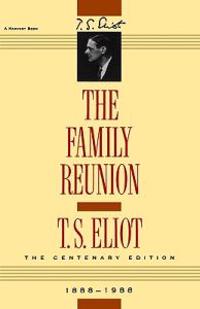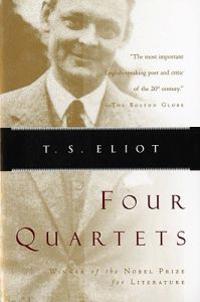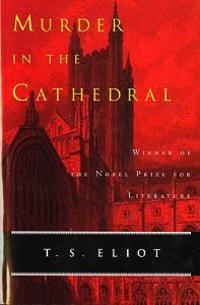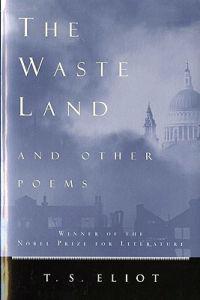Painted Shadow: The Life of Vivienne Eliot, First Wife of T. S. Eliot (Häftad)
avCarole Seymour-Jones
ISBN: 9780385499934 - UTGIVEN: 2003-10The first biography of Vivienne Eliot, the first wife of poet T. S. Eliot, offers a remarkable portrait of a neurotic, lonely, and distraught woman who was abandoned by her husband and confined to a mental asylum but whose tormented marriage became the source and subject of some of Eliot's most accl[...]
T.S. Eliot's Drama (Inbunden)
avRandy Malamud
ISBN: 9780313278136 - UTGIVEN: 1992-04Though better known for his poetry, T.S. Eliot wrote seven important plays between 1926 and 1958, of which "Murder in the Cathedral" (1935) and "The Cocktail Party" (1949) may be most produced. Posthumously, he won Tony Awards in 1983 for the musical adaptation of his poetry in the Broadway producti[...]
Tracing T. S. Eliot's Spirit (Pocket)
avA. David Moody
ISBN: 9780521060967 - UTGIVEN: 2008-04T. S. Eliot's lifelong quest for a world of the spirit is the theme of this book by leading Eliot scholar A. David Moody. The first four essays in the collection map Eliot's spiritual geography: the American taproot of his poetry, his profound engagement with the philosophy and religion of India, hi[...]
Old Possum's Book of Practical Cats (Pocket)
avEliot, T S
ISBN: 9780571105588 - UTGIVEN: 1976-05-04A Student's Guide to the Selected Poems of T.S. Eliot
ISBN: 9780571170821 - UTGIVEN: 1994-03This is a revised and enlarged edition. It is designed to help the reader of Eliot's "Selected Poems" by identifying and explaining the wide and often baffling range of quotations, allusions and references, literary, factual and historical.[...]
T.S. Eliot's Orchestra (Inbunden)
avJohn Xiros (EDT) Cooper
ISBN: 9780815325772 - UTGIVEN: 2000-05First Published in 2000. Routledge is an imprint of Taylor & Francis, an informa company.
T. S. Eliot's Dialectical Imagination
ISBN: 9781421426525 - UTGIVEN: 2018-11The thought-tormented characters in T. S. Eliot's early poetry are paralyzed by the gap between mind and body, thought and action. The need to address this impasse is part of what drew Eliot to philosophy, and the failure of philosophy to appease his disquiet is the reason he gave for abandoning it.[...]
T.S. Eliot's the Waste Land as a Place of Intercultural Exchanges (Inbunden)
avRoxana Stefania Birsanu
ISBN: 9781443859691 - UTGIVEN: 2014-07The focal point of this study is one of the masterpieces of Anglo-American poetry, T.S. Eliot's The Waste Land, tackled from the perspective of translation. In this particular case, translation is deemed to be not only an intraand inter-linguistic transfer, but also a form of intercultural contact. [...]
Annotations to T.S. Eliot's Four Quartets (Häftad)
avEthel Grene, Herman Servotte
ISBN: 9781450240673 - UTGIVEN: 201007The Image of Modern Man in T. S. Eliot's Poetry (Häftad)
avMariwan Nasradeen Hasan Barzinji
ISBN: 9781477247044 - UTGIVEN: 2012-11Connell Guide to T.S. Eliot's The Wasteland (Häftad)
avSeamus Perry
ISBN: 9781907776274 - UTGIVEN: 2014-03T.S. Eliot's The Waste Land is the most famous of modern poems. It is also famously difficult. So why has it always been so popular? What is it that has made generation after generation of readers succumb to its greatness despite its apparently baffling complexity?[...]
T. S. Eliot Reads The Waste Land, Four Quartets and Other Poems (cd-bok)
ISBN: 9780007202638 - UTGIVEN: 2005-03The most famous, beautiful and spiritually moving poems of the twentieth-century, read by the most famous poet. Historic recordings of the cream of Eliot's poetry.[...]
The Waste Land and Other Poems (Häftad)
avT. S. Eliot, Frank Kermode
ISBN: 9780142437315 - UTGIVEN: 200302
While recovering from a mental collapse in a Swiss sanitarium in 1921, T. S. Eliot finished what became the definitive poem of the modern condition, one that still casts a large and ominous shadow over twentieth-century poetry. Built upon the imagery of the Grail legend, the Fisher King, and anc[...]Collected Poems, 1909-1962 (Inbunden)
avT. S. Eliot
ISBN: 9780151189786 - UTGIVEN: 196309There is no more authoritative collection of the poetry that Eliot himself wished to preserve than this volume, published two years before his death in 1965. Poet, dramatist, critic, and editor, T. S. Eliot was one of the defining figures of twentieth-century poetry. This edition of "Collected Poems[...]
Complete Poems and Plays,: 1909-1950 (Inbunden)
avT. S. Eliot
ISBN: 9780151211852 - UTGIVEN: 195211This omnibus collection includes all of the author's early poetry as well as the Four Quartets, Old Possum's Book of Practical Cats, and the plays Murder in the Cathedral, The Family Reunion, and The Cocktail Party.
[...]A Guide to the Selected Poems of T.S. Eliot: Sixth Edition (Häftad)
avB. C. Southam
ISBN: 9780156002615 - UTGIVEN: 199608A unique guide designed to help the readers of Eliot's personally chosen collection, Selected Poems. Specific information about the poems and their development is included, as is a chronology of the poet's life and work.
[...]Anabasis (Häftad)
avSt John Perse, T. S. Eliot
ISBN: 9780156074063 - UTGIVEN: 1970-10This internationally famous poem by the 1960 Nobel laureate was introduced to English-language readers in this translation by T. S. Eliot. In this definitive edition, French and English texts appear on facing pages. Preface by T. S. Eliot.
[...]Christianity and Culture (Häftad)
avT. S. Eliot
ISBN: 9780156177351 - UTGIVEN: 1960-04Two long essays: "The Idea of a Christian Society" on the direction of religious thought toward criticism of political and economic systems; and "Notes towards the Definition of Culture" on culture, its meaning, and the dangers threatening the legacy of the Western world.
[...]The Cocktail Party (Häftad)
avT. S. Eliot
ISBN: 9780156182898 - UTGIVEN: 1964-03Written in verse, this drawing-room comedy is also a commentary on English society
Family Reunion (Pocket)
avT. S. Eliot
ISBN: 9780156301572 - UTGIVEN: 1967-06A modern verse play dealing with the problem of man's guilt and his need for expiation through his acceptance of responsibility for the sin of humanity. "What poets and playwrights have been fumbling at in their desire to put poetry into drama and drama into poetry has here been realized.... This is[...]
Four Quartets (Häftad)
avT. S. Eliot
ISBN: 9780156332255 - UTGIVEN: 196803The last major verse written by Nobel laureate T. S. Eliot, considered by Eliot himself to be his finest work "Four Quartets" is a rich composition that expands the spiritual vision introduced in "The Waste Land." Here, in four linked poems ("Burnt Norton," "East Coker," "The Dry Salvages," and "Lit[...]
Murder in the Cathedral (Häftad)
avT. S. Eliot
ISBN: 9780156632775 - UTGIVEN: 196403T. S. Eliot's verse dramatization of the murder of Thomas Becket at Canterbury, winner of the Nobel Prize for Literature The Archbishop Thomas Becket speaks fatal words before he is martyred in T. S. Eliot's best-known drama, based on the murder of the Archbishop of Canterbury in 1170. Praised for i[...]
The Waste Land and Other Poems (Häftad)
avT. S. Eliot
ISBN: 9780156948777 - UTGIVEN: 195508This volume includes the title poem as well as "The Love Song of J. Alfred Prufrock," "Gerontion," "Ash Wednesday," "Sweeney Among the Nightingales," and other poems from Eliot's early and middle work. "Eliot has left upon English poetry a mark more unmistakable than that of any other poet writing i[...]
Poetics of Fascism, The: Ezra Pound, T.S.Eliot, Paul de Man (Inbunden)
avPaul Morrison
ISBN: 9780195080858 - UTGIVEN: 1996-06-13T. S. Eliot (Inbunden)
ISBN: 9780195309935 - UTGIVEN: 2007-01The winner of the Nobel Trize for Literature, the twentieth century's most famous poet and its most influential literary arbiter, T.S. Eliot has long been thought to be an obscure and difficult poet--forbiddingly learned, maddeningly enigmatic. Now, in this brilliant exploration of T.S. Eliot's work[...]

